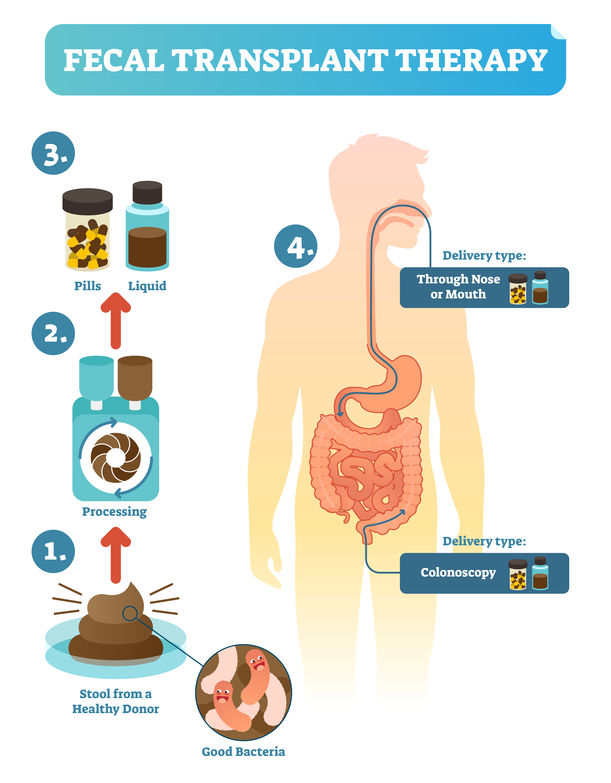
FECAL TRANSPLANTS FOR IBD AND FOR C DIFF INFECTIONS
Fecal transplants have about an 80% chance of curing a Clostridium difficile (C diff) infection. But what are they? They are the replacement of someone's intestinal flora (their microbiome) with someone else's. Either that's done using someone's stool (their poop) that's been tested and prepared. It then is delivered by a colonoscopy into the start of their large intestine (where the small intestine meets it). Tests are now being done to see if the flora can put into pills in the same way that probiotics are usually in a pill or packet form that can some one can take by mouth.
Fecal transplants work well in treating C diff infections that don't respond to antibiotics when the transplants are performed at centers that are used to doing them. This is particularly important because 20 % of C diff infections return in those who don't have inflammatory bowel disease and in 40% of those who do have IBD.
There has been hope that fecal transplants might help patients with ulcerative colitis or Crohn's disease even if they don't have C diff infections. Unfortunately, that hasn't been as promising, though research studies are still being conducted. But so far, about 25% of those who have IBD and get a fecal transplant for C diff actually get worse, not better, and some need to be hospitalized.
There has also been concern about infection that can arise from some of the bacteria that is being added to the person receiving the transplant (particularly E coli) which has caused serious problems for 2 people (1 died). As a result, the Federal Drug Administration (the FDA) has issued stricter guidelines.

This article, as well as all others, was reviewed and edited by a member of our Medical Advisory Board.
Subscribe Be the first to know




